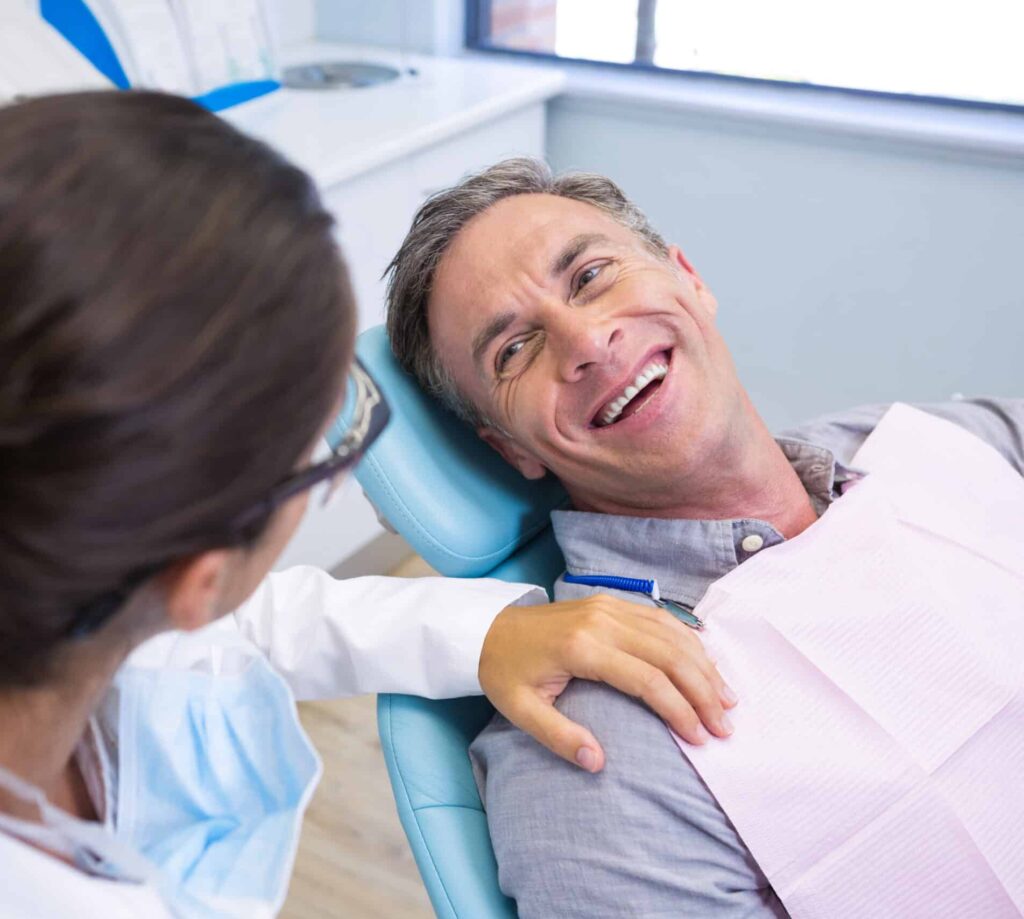At East Hanover Family Dental, we understand that dental emergencies can occur unexpectedly and can cause significant discomfort and anxiety. Our trusted providers in East Hanover, NJ, offer prompt and professional care to help alleviate your discomfort and restore your oral health. Our dedicated team is prepared to handle various dental emergencies with expertise and compassion.
Whether you’re dealing with a severe toothache or a dental injury, we’re here to provide the care you need. Call us immediately if you’re experiencing a dental emergency, and we’ll prioritize your appointment to see you as soon as possible.
What Is Considered A Dental Emergency?
Dental emergencies are situations that require immediate attention to alleviate severe discomfort, prevent tooth loss, or stop further complications. Understanding what constitutes a dental emergency can help you react appropriately and seek timely care. Common dental emergencies include:
- Severe toothaches: Persistent or intense tooth discomfort that may indicate an underlying issue such as decay, infection, or a damaged tooth.
- Tooth abscesses: A painful infection at the root of a tooth or between the gum and a tooth that requires prompt treatment to prevent the spread of infection.
- Cracked or fractured teeth: Damage to the structure of a tooth that can cause discomfort and increase the risk of further damage or infection.
- Tooth avulsions (knocked-out teeth): A tooth that has been completely knocked out due to trauma, which can often be saved with immediate dental care.
- Soft tissue injuries: Cuts, tears, or injuries to the gums, cheeks, lips, or tongue that may require medical attention.

Steps To Take In A Dental Emergency
If you experience a dental emergency, following these steps can help manage the situation until you receive professional care:
- Stay calm: Keeping calm can help you think clearly and take the necessary actions.
- Contact our office immediately: Call our office to schedule an emergency appointment. Describe the situation in detail to receive appropriate advice.
- Protect the affected area:
- For knocked-out teeth, gently rinse the tooth without scrubbing and try to place it back in the socket. If that’s not possible, store the tooth in milk or a saline solution.
- For cracked teeth, rinse your mouth with warm water and apply a cold compress to reduce swelling.
- Apply cold compresses: Use a cold compress on the outside of your mouth to alleviate swelling and discomfort.
- Avoid eating or drinking: Refrain from consuming food or beverages, especially on the affected side, until you’ve been seen by one of our doctors.

Emergencies We Treat
Severe Toothache
- Persistent discomfort can indicate serious issues such as cavities, infection, or gum disease.
- We diagnose the root cause and provide effective relief through various treatments, including fillings, root canals, or extractions.
Abscess
- A dental abscess is a serious condition characterized by pus and infection at the tooth’s root or gumline.
- Symptoms may include severe discomfort, fever, swelling, and a foul taste in the mouth.
- Prompt treatment involves draining the abscess, prescribing antibiotics, and addressing the underlying cause.
Cracked Tooth
- A cracked tooth can result from trauma, grinding, or biting on hard objects.
- Immediate care prevents further damage and restores the tooth’s integrity with treatments like bonding, crowns, or veneers.
Tooth Fracture
- Fractures can range from minor chips to severe breaks.
- Treatment depends on the severity and includes bonding, crowns, or, in severe cases, extraction and replacement options like implants.
Tooth Avulsion
- Quick action is crucial to save a knocked-out tooth.
- Proper handling and timely reimplantation can often restore the tooth, followed by splinting and monitoring.
Soft Tissue Trauma
- Injuries to the mouth’s soft tissues can result from accidents or sports injuries.
- We provide sutures, treatment for infection, and guidance for healing.
The Impact Of Neglecting Dental Emergencies
Ignoring dental emergencies can lead to severe consequences, including:
- Increased discomfort: Untreated dental issues can escalate, causing more discomfort and complications.
- Infection spread: Conditions like abscesses can spread infection to other parts of the body, posing significant health risks.
- Tooth loss: Delaying treatment for fractures, avulsions, or severe decay can lead to tooth loss, requiring more complex and costly restorative procedures.
- Long-term oral health issues: Neglecting emergency care can result in long-term damage to the gums, jawbone, and surrounding teeth.
Preventing Dental Emergencies
While not all dental emergencies can be prevented, taking proactive measures can reduce your risk. Consider these tips:
- Regular dental check-ups: Routine exams and cleanings can identify and address potential issues before they become emergencies.
- Mouthguards: Wearing a mouthguard during sports activities can protect your teeth from trauma.
- Avoid hard foods: Be cautious with hard or sticky foods that can crack or damage your teeth.
- Good oral hygiene: Brushing and flossing regularly helps prevent decay and gum disease.

A Reliable Choice For Emergency Dental Care
At East Hanover Family Dental, we are committed to providing comprehensive and compassionate emergency dental care. Our dedicated team ensures that each patient receives personalized and immediate attention in their time of need. Our advanced facility and expertise make us a trusted choice for emergency dental services in East Hanover, NJ. Whether you’re experiencing discomfort or a sudden dental injury, we are here to restore your smile and oral health. Contact us now for prompt and professional emergency dental care.
